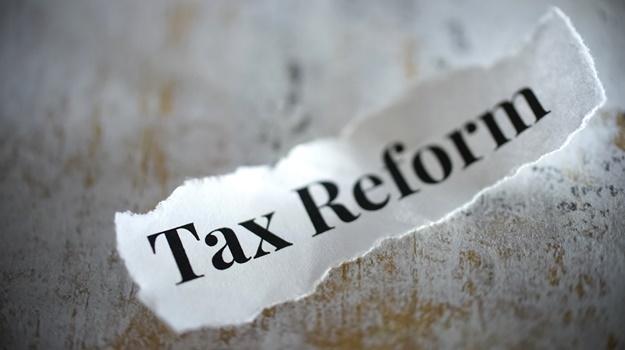
- Current legislation allows a person who has formalised his or her emigration by using the "financial emigration" process, to fully withdraw their retirement funds when the process is complete.
- President Cyril Ramaphosa, however, now signed the Taxation Laws Amendment Act into law, effective from 1 March 2021.
- The consequence is that, from that date, certain retirement benefits will be locked in for a minimum period of three years.
President Cyril Ramaphosa has signed the 3-year retirement fund lock-in into law as part of the Taxation Laws Amendment Act and it will become effective as from 1 March 2021.
Current legislation allows a person who emigrates from South Africa and who has formalised his or her emigration by using the "financial emigration" process, to fully withdraw their retirement funds when the process is complete. This would include, for example, the withdrawal of a retirement annuity, prior to maturity of that fund.
Retirement fund members are generally only allowed to access their retirement fund benefits when they reach retirement age, namely 55 for retirement annuity members and preservation fund members who have already taken the one prior withdrawal allowed. However, the definition of a pension preservation fund, provident preservation fund and retirement annuity fund in the Income Tax Act allows a fund member to withdraw their full fund value prior to retirement if they "formally emigrate" from South Africa.
The Taxation Laws Amendment Bill, however, makes provision for the payment of a retirement fund lump sum benefit when a member ceases to be a South African tax resident and has remained non-tax resident for a period of at least three consecutive years. The three-year waiting period applies only to preservation funds and retirement annuity funds.
"The consequence is that, from 1 March 2021, retirement benefits will be locked in for a minimum period of three years," says Jonty Leon, legal manager (expatriate tax) at Tax Consulting South Africa.
"The current situation has been useful for many South Africans who have left or are currently leaving, as often these funds are used to set themselves up in their new home country. It also allowed for taxpayers to decide to remove their investment and invest in something more viable for their new circumstances," says Leon.
"South Africans who have already financially emigrated still have the opportunity to withdraw their retirement funds under the current regime. Those who have finalised financial emigration, or have their full application submitted to the SA Reserve Bank (SARB) prior to 28 February 2021, will now have the opportunity to withdraw their retirement funds under the old dispensation until 28 February 2022."
After 1 March 2021
Without financial emigration, and from 1 March 2021, taxpayers will only be able to access their retirement benefits if they can prove they have been non-resident for tax purposes for an uninterrupted period of three years.
"How the new system will practically work is yet to be set out, taking into consideration the policy provider's requirements, SA Revenue Service (SARS) requirements, the need for documentary supporting evidence and proof of non-residency status for three consecutive years," says Leon.
He warns that a more stringent verification process and risk management test are in the pipeline, if the Budget Speech in February 2020 is anything to go by.
"The immediate downside for those that will not be able to withdraw these funds as soon as they need them, is self-evident. However, the longer-term downsides of a lock-in period, which come with far more uncertainty, need to be taken into account as well," says Leon.
"The 2020 Budget Speech spoke to relaxing regulations around exchange control, which comes as a stark contrast to the legislation passed, which effectively traps retirement funds in SA. There are no guarantees that Government may not decide to extend the three-year period for another three years, or perhaps indefinitely."
Lockdown impact
Jean du Toit, head of Tax Technical at Tax Consulting SA, points out that South African resident taxpayers who earn their remuneration in respect of services rendered abroad, may qualify for an exemption from income tax of up to R1.25 million.
To qualify for the exemption, the Income Tax Act determines that taxpayers have to spend more than 183 days in aggregate outside South Africa during a twelve-month period, of which more than 60 days must be continuous. However, due to the travel bans imposed as a result of the Covid-19 pandemic, many of these people could not travel to their countries of employment. For many, this would mean they would not have met the 183-day threshold, resulting in an unanticipated South African tax liability.
The Taxation Laws Amendment Act reduces the 183-day threshold by 66 days, which means that taxpayers who spent more than 117 days outside South Africa may still qualify for the exemption. The 66-day reduction is based on the period that commenced on 27 March 2020 and which ended on 31 May 2020, when the country operated under hard lockdown Covid-19 alert levels 5 and 4, explains Du Toit.
"The continuous period of more than 60 days remains unchanged; the concession only extends to the aggregate number of days spent outside South Africa. Equally important, this amendment does not constitute a permanent change to the exemption. It only applies to any 12-month period in respect of any year of assessment ending on or after 29 February 2020 but on or before 28 February 2021," he says.
"It is important to understand that you can leverage the exemption over multiple tax years. This principle, which can be referred to as 'double dipping', can be difficult to apply correctly. This will particularly be the case in the context of the amendment because it is restricted to very specific periods. But it still applies, and taxpayers must plan proactively to ensure they use the exemption correctly and to their greatest benefit."




 Publications
Publications
 Partners
Partners












